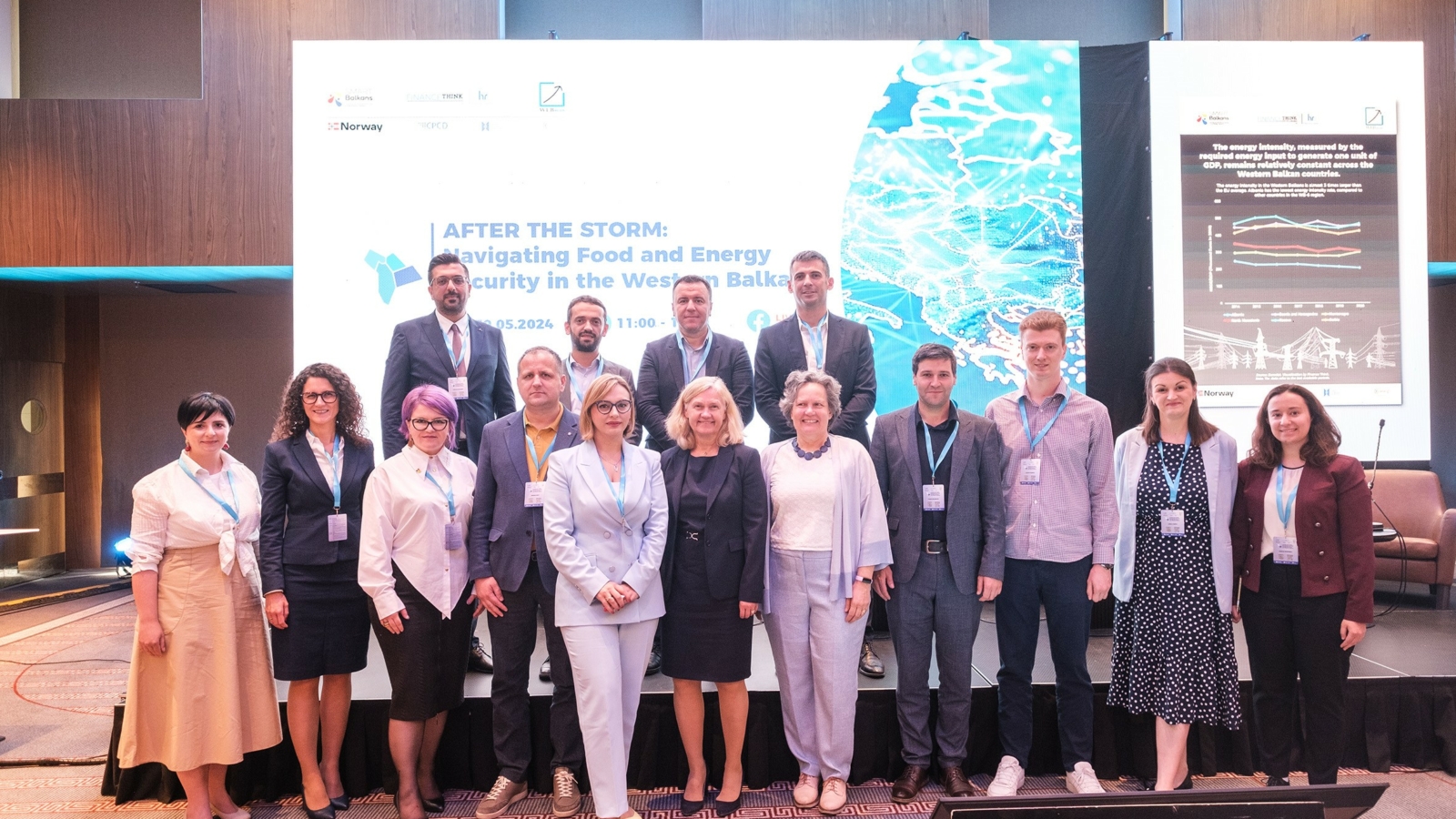On May 30, 2024, Finance Think organized the Economic Forum Navigating Food and Energy Security in the Western Balkans, whose aim was to present new findings from the recent crisis with food and energy prices, relying on Policy Studies for the Western Balkans, with a focus on four key aspects: the existence of households, the competitiveness of companies, fiscal space and regional integration.
After that, the road map with the necessary measures and actions to ensure self-sustainability and resistance to shocks for the countries of the Western Balkans was additionally discussed.
The energy crisis caused a dramatic increase in energy prices in the Western Balkans countries. In addition to heavy dependence on fossil fuels and electricity imports, inefficiencies in energy consumption have further deepened the problem. Unlike the EU, Western Balkans countries consume 50% more energy to produce the same amount of GDP.
During the last 6 years, the regional capacities for renewable energy grow almost three times slower than in the EU.
The multifaceted crises also affected poverty in the region. In the case of Bosnia and Herzegovina, a 17.4% increase in electricity prices contributed to a 4 percentage point increase in individual and household poverty rates, where low-income households were particularly affected.
As a result, the governments of the Western Balkans countries introduced anti-crisis measures for households in the estimated amount of 3.5 billion dollars in the Western Balkans, which significantly affected the already worn fiscal space. In North Macedonia, electricity subsidies for households reached 3.2% of GDP, putting a significant burden on the budget and potentially contributing to a reduction in social and health care expenditures. A positive outcome of this period is the fact that the medium-term fiscal strategies of the WB countries envisage larger investment plans for the development of the energy sector, which are crucial for preventing future shocks of this type, as well as for reducing the additional pressures on the fiscal politics.
Kristin Melsom, Ambassador of the Royal Norwegian Embassy in Serbia, North Macedonia and Montenegro, emphasized:
„The Western Balkans are currently facing a critical point, with food and energy insecurities posing significant threats to the region’s economic stability. Both the SMART Balkans Project and FINANCE THINK have identified these insecurities as pressing issues affecting all segments of society, including household livelihoods, firm competitiveness, fiscal space, and regional integration. Experts have highlighted the need in the Western Balkans for investment in energy infrastructure and supportive institutions and policies to ensure reliable, affordable, and sustainable energy. The main causes of food insecurity in the Western Balkans come from economic instability, environmental challenges, and social differences. High unemployment rates and low GDP per capita limit household purchasing power, restricting access to nutritious food. Weather extremes and natural disasters further impact food production and distribution. Addressing these causes requires efforts to bolster economic growth, enhance agricultural resilience, and promote social justice.“
„I am proud that SMART Balkans project recognized the importance of the project The Perfect Storm: Food and Energy Insecurities Threaten the Economies of the Western Balkan. I am encouraged when I see a lot of people who are interested in this topic and work of think thank organisations gathered around this project. Its methodology and approach represent a great contribution to stronger, more sustainable, and vibrant CSOs that work in regional partnerships to influence policies regarding food and energy stability in WB. The brilliant minds of this consortium are dedicated to generating evidence and fostering a policy dialogue on food and energy insecurities across the region“, said Dajana Cvjetkovic, SMART Balkans project manager.
Blagica Petreski, Executive Director of Finance Think, pointed out: “In view of the challenges, on our road to recovery, it is necessary to focus on building resilient and sustainable economies. We need targeted social support and energy price stabilization as critical measures to mitigate the negative effects of the energy crisis on household livelihoods.”
The Economic forum was organized within the “The perfect storm: Food and energy insecurities threaten the economies of the Western Balkan” supported by SMART Balkans regional grant.














